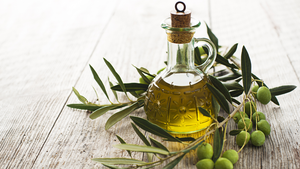Cargill and Nestlé Purina have partnered with the Nature Conservancy to launch a 3-year water project to improve the sustainability of the U.S. beef supply chain. The project is expected to reduce the environmental impact of row crop irrigation in Nebraska and provide a scalable irrigation solution for farmers across the United States.
.png?width=850&auto=webp&quality=95&format=jpg&disable=upscale)
More than 50 percent of water used in U.S. beef production is dedicated to irrigating the row crops that become feed for cattle. By putting first-of-its-kind, cost-effective irrigation technology in the hands of farmers, the amount of water needed for row crop irrigation is greatly reduced, as is the environmental impact of the beef supply chain. The Nebraska project enables farmers to make more informed irrigation decisions, by installing smart weather sensors in crop fields and using Internet of Things (IoT) technology on sprinklers connected to a smart phone app.
Nebraska has the largest share of irrigated acres in the United States, and the second largest cattle population. The Ogallala Aquifer, which spans most the state, provides water to nearly one-fifth of wheat, corn, cotton and cattle produced domestically and is the main water supply for people throughout the High Plains region.
“By using smart weather sensor technology in row crop irrigation, this program could help save 2.4 billion gallons of irrigation water over three years, which is equivalent to roughly 7,200 households over that time period,” said Hannah Birge, water and agriculture program manager at The Nature Conservancy. “The reduction of pumping also means less energy used and less labor expense for farmers.”
The project uses Field to Market's FieldPrint® Platform to track progress and was initiated through the efforts of the Midwest Row Crop Collaborative, a group of leading companies and conservation organizations focused on advancing and accelerating farmer-led programs in water conservation, water quality, and soil health in key agricultural states. By engaging the Midwest Row Crop Collaborative, best practices from the Nebraska project can extend to farmers in other regions.
“Nestlé Purina believes in adding value to agricultural lands that represent our supply chain,” said Diane Herndon, senior sustainability manager, Nestlé Purina. “Ranchers and farmers are doing important work to make sure that they are protecting our natural resources for future generations. We all need to continue to adapt to a changing marketplace and a changing climate, and this project helps to improve water use efficiency in irrigated row crops used as cattle feed.”
“Farmers are continually innovating to bring food to the table more sustainably,” said Courtney Hall, Cargill technical sustainability manager. “By working with them, and alongside The Nature Conservancy and Nestlé Purina, we’re scaling these solutions around water conservation to ensure an even more sustainable future for beef.”
About the Author(s)
You May Also Like






